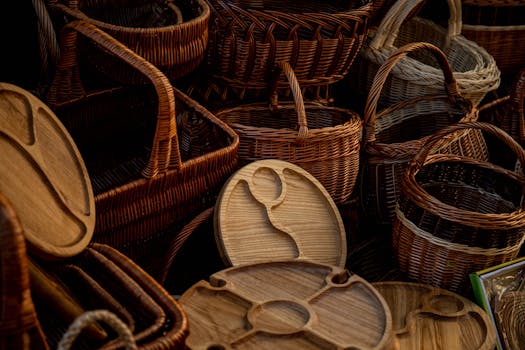Markets and Collectibles and eco-friendly
The worlds of markets and collectibles are evolving rapidly, with a significant shift towards sustainability and eco-friendliness. As consumers become more environmentally conscious, the demand for eco-friendly products in these niches is surging. This trend presents exciting opportunities for collectors, investors, and businesses alike.
The Rise of Eco-Friendly Markets
The markets for collectibles have always been dynamic, reflecting the interests and values of society. Today, one of the most prominent trends is the growing emphasis on eco-friendliness. This shift is driven by a heightened awareness of environmental issues and a desire to reduce waste and carbon footprints.
Eco-friendly markets encompass a wide range of products, from vintage clothing and upcycled furniture to sustainable art and green technology. These items not only appeal to collectors but also align with the values of environmentally conscious consumers.
Key Players in Eco-Friendly Collectibles
Several key players are leading the way in eco-friendly collectibles. For instance, **Etsy**, a global marketplace for handmade and vintage items, has seen a significant increase in listings for sustainable products. The platform’s focus on unique, often upcycled items makes it a hub for eco-conscious collectors.
Another notable example is **eBay**, which has introduced initiatives to promote sustainability. The company encourages sellers to offer eco-friendly products and provides resources for reducing packaging waste. Additionally, eBay’s partnership with the **World Wildlife Fund (WWF)** aims to offset carbon emissions from shipping.
The Benefits of Investing in Eco-Friendly Collectibles
Investing in eco-friendly collectibles offers numerous benefits. Firstly, these items often have a lower environmental impact compared to mass-produced goods. Secondly, they can appreciate in value over time, making them a sound investment.
Moreover, eco-friendly collectibles often tell a story or have a unique history, adding to their appeal. For example, vintage clothing from sustainable brands or upcycled jewelry made from reclaimed materials can be both beautiful and meaningful.
Tips for Building an Eco-Friendly Collection
- **Research Sustainable Brands**: Look for brands that prioritize sustainability in their production processes. This can include using recycled materials, minimizing waste, and ensuring fair labor practices.
- **Consider the Item’s Lifespan**: Opt for items that are durable and long-lasting. This reduces the need for frequent replacements and minimizes waste.
- **Support Local Artisans**: Buying from local artisans not only supports your community but also often means fewer carbon emissions associated with transportation.
The Role of Technology in Eco-Friendly Markets
Technology plays a crucial role in the growth of eco-friendly markets and collectibles. Online platforms make it easier for buyers and sellers to connect, reducing the need for physical travel and lowering carbon footprints.
For example, **Depop**, a social shopping app popular among young people, allows users to buy and sell second-hand clothing. This not only extends the life of garments but also promotes a circular economy. Similarly, apps like **Vinted** and **Poshmark** facilitate the resale of pre-owned items, reducing textile waste.
The Future of Eco-Friendly Collectibles
As awareness of environmental issues continues to grow, the future of eco-friendly collectibles looks bright. Consumers are increasingly seeking out sustainable options, and businesses are responding by offering more eco-friendly products.
Innovations in materials science and manufacturing processes will also drive this trend forward. For instance, advancements in biodegradable materials and 3D printing could revolutionize the way collectibles are produced and consumed.
The Impact of Policy and Regulation
Government policies and regulations will also play a significant role in shaping the future of eco-friendly markets. Initiatives such as extended producer responsibility (EPR) laws, which hold manufacturers accountable for the entire lifecycle of their products, can encourage more sustainable practices.
What This Means For You
Whether you’re a seasoned collector, an investor, or someone looking to make more sustainable choices, the rise of eco-friendly markets and collectibles presents exciting opportunities. By embracing this trend, you can contribute to a healthier planet while also building a valuable collection.
Start by educating yourself about sustainable brands and products. Explore online marketplaces for unique, eco-friendly items. And don’t forget to support local artisans and businesses that prioritize sustainability. Together, we can create a more eco-conscious future in the worlds of markets and collectibles.
